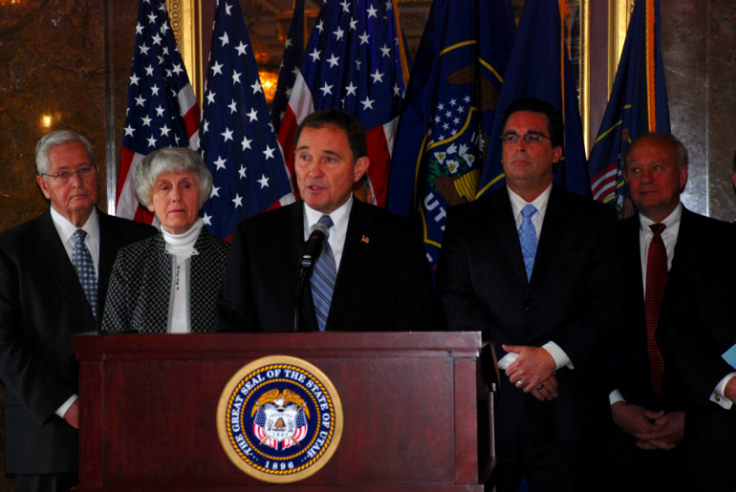Utah Firing Squad Execution Update: Gov. Gary Herbert Signs Lethal Injection Alternative

Utah Gov. Gary Herbert signed legislation Monday allowing firing squads to execute death row inmates if lethal injection drugs are unavailable, the Associated Press reported Monday. Utah to revert to the firing squads since lethal injection became the preferred method of execution.
The firing squad will only be used in capital punishment cases if the legal drugs needed for lethal injection cannot be obtained within 30 days of an execution date. The governor has said he prefers lethal injection to bullets, but the “little bit gruesome” firing squad bill is a backup plan. It will not continue if the drug shortage ends.
"We regret anyone ever commits the heinous crime of aggravated murder to merit the death penalty, and we prefer to use our primary method of lethal injection when such a sentence is issued," Herbert spokesman Marty Carpenter said Monday, according to the Associated Press. "However, when a jury makes the decision and a judge signs a death warrant, enforcing that lawful decision is the obligation of the executive branch."
The decision is something the governor has considered for a while. Last week, he said he was “leaning toward” signing the bill. "The debate is really more than just the firing squad. It's should we have capital punishment or not?" Herbert said.
While thousands of Utah residents oppose the measure, some -- like Republican Rep. Paul Ray -- said a firing squad execution is more humane than lethal injection, citing last year's botched execution in Oklahoma. It took the inmate 43 minutes to die, instead of the normal 10 minutes, and witnesses described the execution as a bloody horror movie scene.
The debate on alternative methods of execution arose after a shortage of the drugs needed developed thanks to European manufactures who oppose capital punishment.
Follow me on Twitter @mariamzzarella
© Copyright IBTimes 2025. All rights reserved.





















